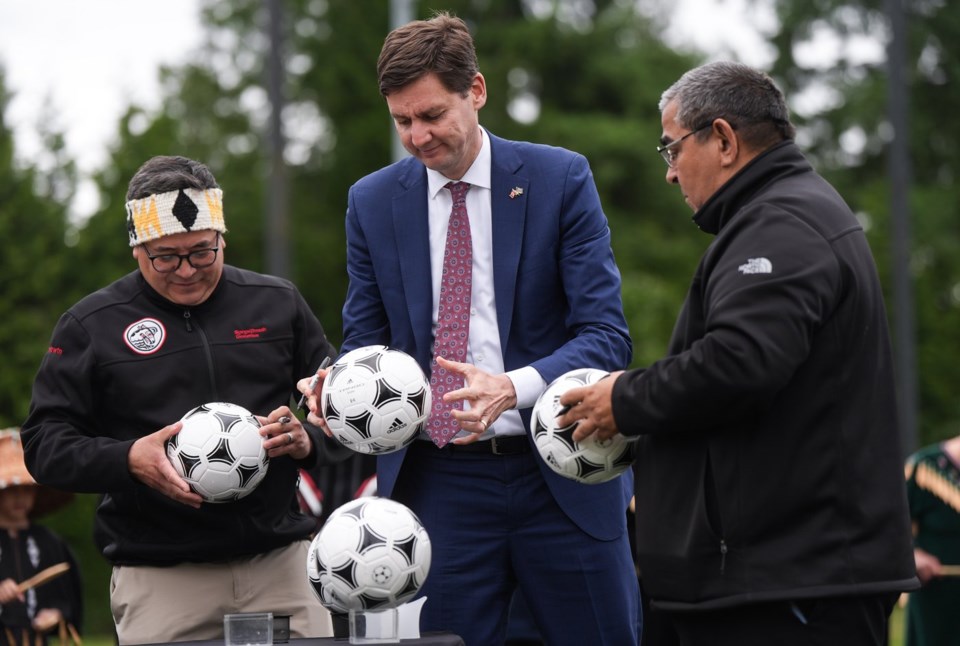VANCOUVER вҖ” British Columbia's government, the City of Vancouver and three First Nations have signed an agreement to co-operate on hosting the seven World Cup games being played in the city next year.
In a ceremony on Friday, Premier David Eby, Mayor Ken Sim, Musqueam Chief Wayne Sparrow, В鶹Йз№ъІъNation councillor Wilson Williams and Tsleil-Waututh councillor Deanna George signed a memorandum of understanding to ensure "interests of the nations are reflected throughout" the planning and hosting of the games.
Sparrow said the location of the ceremony вҖ” a facility on Musqueam land used during the 2010 Winter Olympic Games вҖ” is symbolic of how local communities can benefit from events such as the World Cup.
The B.C. government said the agreement is a framework on how the five parties will work together in planning, staging and hosting the World Cup games, as well as developing approaches to shared opportunities.
Organizers are expecting the seven World Cup games in Vancouver to draw about 350,000 spectators to BC Place Stadium and to add more than a million out-of-province visitors between 2026 and 2031.
They say that will generate direct and indirect provincial tax revenues of up to $224 million.
The B.C. government issued a release this week saying the net core provincial cost of hosting the games is in the range of $85 million to $145 million.
Organizers announced last year that the estimated cost of hosting the seven games more than doubled to between $483 million and $581 million, which includes costs for the city, the province and stadium upgrades.
Eby said the agreement gives the province a unique opportunity to not only demonstrate the co-operation between governments and First Nations, but to also showcase Indigenous culture to the world.
"In this time of global turmoil and strife, it is a chance to demonstrate how we do things in British Columbia, how we work together to create something amazing," Eby said.
"It is a huge opportunity for us culturally, economically, and yet another chance to demonstrate the British Columbia way of doing business."
Sparrow said the Musqueam community had relied on "a small piece of grass" for its soccer needs before the 2010 Olympics, but the Games brought about the construction of the current facility, featuring a turf field, a grass field and a clubhouse.
"Where we stand today was how we came together in the 2010 Olympics and put our differences aside and came together as family and worked together," Sparrow said at the ceremony site on Friday.
"Now that we have a place for our kids to play. And that shows how when we come together and our sport brings us together, that we have the opportunity now for our kids to have a place."
Williams, the В鶹Йз№ъІъchief, said the World Cup вҖ” with the First Nations acting as host partners вҖ” presents B.C. with an even greater opportunity to draw more major international sporting events.
"The experience when people come off those planes, come ashore, come and visit, the retention of the experience they're going to have is going to be so memorable and so strong, there's no way they're going to turn down a request that we're hosting the World Cup in the future вҖ” and any world international event for that matter."
This report by The Canadian Press was first published June 27, 2025.
Chuck Chiang, The Canadian Press



